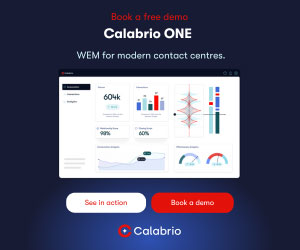Martina Ivanovic at infobip shares tips on how to improve customer satisfaction scores.
Customer satisfaction has become a Main Priority for businesses over the past few years. With customers being at the core of every business, it’s important to continuously improve your products and services to meet their needs so you can increase customer satisfaction survey scores.
Improving your customer service and experience is not only beneficial to your customers, but to your business as well. In a recent survey we conducted in the UK and France, 54% of Consumers said they would Purchase More from a brand they had a positive experience with.
To better understand what customer satisfaction is and how to increase customer satisfaction survey scores, we’ve highlighted nine ways to improve your customer service experience below.
What Is Customer Satisfaction?
Customer satisfaction is the result of how well your products or services Meet or Exceed Customer Expectations. It can be hard to track, measure, and improve. The most common way to keep track of how happy your customers are is to collect feedback through surveys and polls.
However, although this will give you an idea of how well (or not so well) you’re meeting your customers’ needs, it’s important to focus on the factors that Influence this number in order to improve it.
Over the last few years, the emphasis has been put on Customer Service, in addition to the quality of products or solutions, as the main factors that increase customer satisfaction survey scores.
A large differentiating factor in customer service can be communication. Having the right channels and tools to communicate efficiently and effectively can be what separates a brand with good customer satisfaction from a brand with Great Customer Satisfaction.
9 Ways to Increase Customer Satisfaction Survey Scores
With the ongoing global events we’re experiencing today, customer expectations continue to soar.
Out of the 4,000 Consumers we surveyed in the UK and France, 21% said they developed higher expectations from customer service teams during lockdown – and 33% said they will have higher expectations once lockdown has been lifted.
Most customer pain points when it comes to customer service experiences are centered around Waiting to Speak to Customer Service Teams and having Limited Ways to Reach Them.
Here are nine ways you can improve your customer service experience and increase customer satisfaction survey scores:
1. Tune Into Your Customer’s Journey
Your customer’s journey isn’t linear, so it’s important to have the right channels at each stage to make it easy for customers to reach you. Setting up chat options on your website, on Google search, and within your app to answer any questions they might have along the way is a simple yet effective way to increase your customer satisfaction survey scores.
To take it one step further, ask your customers what their Channel Preferences are. You can do this at checkout by giving them tick-box options to choose from or when they subscribe to your newsletter or service. Then, take note of this and use it to build a customer experience tailored to their needs.
2. Provide Omnichannel Support
Your customers are everywhere – and you should be too. It’s not enough to restart the same conversation in different channels. In fact, 20% of UK Consumers find repeating details to customer service teams the most annoying when it comes to their experience.
Now, customers expect you to Continue the conversation from one channel to another. This means if they’ve already enquired about a product or service through live chat on your website, they expect you to have that information ready when you reach out to them on WhatsApp later.
Setting up a cloud contact center can make this easier for you. Keeping your channels connected in one space gives your agents access to relevant information without switching between tabs and tools, which also helps them provide support faster.
3. Personalize the Experience
Gone are the days where adding the FirstName code to your chatbot or emails was enough to claim your customer experience is personalized. Younger generations are more brand-conscious and won’t just buy from anyone.
To stand out in today’s hyper-marketed world, brands need to Know Their Customers – their likes, dislikes, previous purchases, potential future purchases, and preferred ways of communicating.
Using tools that collect information from your CRM, ticketing, and ecommerce systems to create customer profiles can help you get ahead of the curve. Combining the use of customer profiles with rich media-filled channels such as WhatsApp, Viber, and Messenger lets you make purchase suggestions based on customers’ previous purchases while keeping them engaged.
4. Dig Into Your Data
Having in-depth customer insight on hand can help you reframe your approach to increase customer satisfaction survey scores. Collecting customer communication preferences, purchase history, and query history can help you Identify Patterns and predict future actions.
Using this in combination with an omnichannel engagement hub can help you set up revenue-generating marketing campaigns. To take it one step further, connect your data to your cloud contact center so your agents can access it from Anywhere at any Time.
Leveraging this information can help you hyper-personalize your marketing and customer support so you can make every interaction with your customers a memorable one.
5. Leverage Rich Media
“A picture is worth a thousand words” might be an old saying but is still relevant today. Using channels that enable you to share media helps make your communication more efficient and effective.
Rich media functionalities and features such as Carousels, Photo Cards, and Quick Reply Buttons help you showcase your products or services in a way that grabs attention and creates an Interactive Experience.
In addition, rather than explaining complex concepts over the phone or having to meet face-to-face, you can share Documents, Catalogs, and Brochures through the same channel you use to communicate with your customers. This keeps everything in one place for them and your agents so they can refer to it later.
6. Automate Where Possible
As much as we all crave human-to-human interaction, instant answers are still usually favored for simple queries. Our research shows that 33% of UK Consumers and 49% of French Consumers find waiting to speak to a customer service rep the most annoying when it comes to their overall experience.
An easy way to overcome this challenge is to automate wherever possible. Adding automation, such as chatbots and IVR, has several benefits for your business and customers. For starters, they’re cost-effective solutions and are relatively easy to set up.
Using a drag-and-drop chatbot building platform lets you set up keyword- or intent-based chatbots that can offload frequently asked questions from your agents in only a few steps. Adding automation to your cloud contact center also enables you to transfer complex queries to agents when needed.
When customers know they’ll get the information they’re looking for in a matter of seconds or minutes when contacting you, they’re more likely to stay loyal to your brand.
7. Provide Self-Service Options
Consumers today want to be able to find the right information and complete their journey on their own. Although it’s nice to have help once in a while, setting up a self-service environment eliminates the need for customers to wait on hold longer than it takes for them to resolve the problem.
A good way to do this is to combine AI chatbots with rich media. Customers can chat with your bot and your bot can provide them with appropriate materials, such as brochures, vouchers, maps, weekly catalogs, and more.
AI chatbots also learn over time and can provide more relevant answers to customers the more that it interacts with them. This way customers can get all the information they need, and your agents can handle more complex queries.
8. Adapt to Changing Trends and Behaviours
2020 was a real example of how important it is to follow and adapt to changes in business and society. Shifting offline practices to online remains a challenge – and businesses and customers are still trying to figure out how to continue to do business as usual, virtually.
Being prepared with the proper technology, such as web real-time communication, is key. One example is the way many healthcare practitioners used Video as a channel to continue their practice and help patients during lockdown.
Using new channels to adapt your customer service to changes in trends and behavior keeps you connected to your customers and increases your customer satisfaction.
9. Empower Your Agents
Your agents are the frontline of your customer service and hold great power over a customer’s experience and satisfaction with your brand. Empowering your agents with the right tools to help them exceed customer expectations is what can keep your customer satisfaction survey scores high.
Setting up a cloud contact center with omnichannel capabilities that include chat apps, video, chatbots, and customer profiles can help your agents resolve more queries faster and with quality.
How Brands Used Infobip to Increase Customer Satisfaction Survey Scores
Challenge: Time-consuming voice calls led to overwhelmed agents and negative customer feedback
Solution: Creating a keyword chatbot to provide instant responses to queries and moving to a cloud contact center to give agents a single view of conversations including chat history and customer profiles.
Result:
- NPS score grew 21% in April and an additional 39% in June
- Ratings from customer surveys used to be 1 to 3 stars and are now 4 or 5 stars
- Conversion rate for online sales grew from 2% to 13%
Challenge: User security concerns, a complex registration process, and overloaded customer support
Solution: Implementing Infobip’s cloud contact center to give agents a 360-degree view and introducing WhatsApp as a new communication channel to set up automated messages and share rich media.
Result:
- Improved customer satisfaction
- More registrations
- Happier and more productive agents
Challenge: New customer demand led to a need for new communication channels
Solution: Implementing Infobip’s cloud contact center to automate appointment scheduling with a keyword chatbot on WhatsApp and later share do-it-yourself videos during lockdown
Result:
- Personalized customer experiences led to increased sales and customer loyalty
- 13.8x return on advertising spend (ROAS) from Click to WhatsApp campaigns
- Satisfied customers and agents
Challenge: Growing customer base led to the need for new tools, channels, and automations
Solution: Implementing Conversations and Answers to create a multilingual WhatsApp chatbot to resolve common queries and transfer complex ones to the right agent
Result:
- 96% decrease in wait time
- 69% of chats self-serviced
- MoM increase in customer satisfaction
Learn More About How to Increase Customer Satisfaction Survey Scores
Increasing customer satisfaction survey scores is an ongoing process. As innovations in technology continue to rise, so will customers’ expectations. It’s important to explore all the options available to your business to ensure you’re meeting customers where they are and are delivering the experience they expect.
Author: Guest Author
Published On: 27th Apr 2021
Read more about - Guest Blogs, Infobip



































